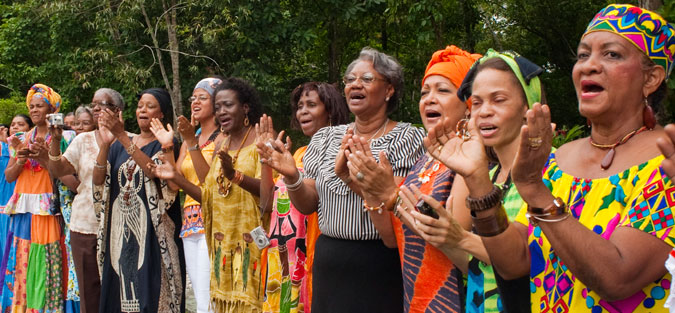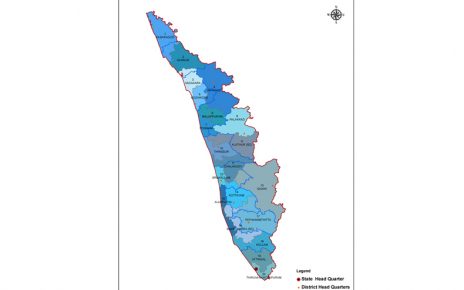The Special Rapporteur on the rights of indigenous peoples, Victoria Tauli-Corpuz in her latest report to the UN Human Rights Council stated that the indigenous peoples around the world are facing discrimination and hurdles in accessing justice.
According to the report, indigenous peoples are often less likely to receive favourable rulings than non-indigenous litigants and even in cases where courts rule in favour of an indigenous person or community, the judgments are far less likely to actually be enforced or the compensation or remedy may be non-existent or not culturally adapted to their needs. Yet, the ordinary justice system is the only recognized avenue by States for indigenous peoples to seek legal redress for violation of their individual and collective rights, such as those involving land rights or protection of their traditional knowledge, or to address accusations of criminality against them.
The Special Rapporteur has identified several reasons including deep alienation, discrimination, racism and the language barriers faced by the indigenous peoples in accessing justice.
The report found that indigenous peoples are overrepresented in every stage of criminal justice processes, from arrest through the serving of prison sentences, in every region of the world. They are overrepresented in prison and detention centres. For example, in Australia, the Special Rapporteur observed that while Aboriginal and Torres Strait Islanders represent only around 3 per cent of the national population, nearly one third of the prison population is indigenous. More than 50 per cent of Australian children in detention, some as young as 10, are Aboriginal and Torres Strait Islanders.
Commenting on the indigenous concepts of law and justice, the Special Rapporteur stated, “A general characteristic of indigenous justice systems that is fundamentally different from ordinary justice systems is that the sources of law applied do not derive from codified laws or tribunal decisions, but rather from oral histories, world views, spiritual and other cultural traditions, family or clan relations and obligations, and their close relationship with their traditional lands.” She has pointed out that although the international human rights standards recognize the right of indigenous peoples to maintain and develop their own legal systems and institutions, such recognition by the States has been limited. “Customary practices are an integral part of everyday life and play a key role in resolving disputes between indigenous individuals and communities, such as land disputes, conflicts between communities, management of natural resources and protection of the environment,” the report added.
In Asia, the recognition of indigenous customary law and jurisdiction varies greatly. The report cited that Article 18 B (2) of the Indonesian Constitution, section 15 of the Indigenous Peoples’ Rights Act 1997 of the Philippines and Section 2 (4) of the Constitution of Timor-Leste recognize the customary laws and practices of the indigenous peoples. The report also cites the Sixth Schedule of the Indian Constitution as an example of India protecting the customary law of certain tribes in several states in north-east India and gives constitutional guarantees to indigenous peoples in the States of Nagaland and Mizoram for their customary law and traditional justice systems. Similarly, in Bangladesh, the Chittagong Hill Tracts Regulation of 1900 recognizes the customary land and resource rights of the indigenous peoples under the custodian role of traditional chiefs and headmen.
Recommendations
The Special Rapporteur recommended that States should explicitly recognize, in constitutional or other legal provisions, the right of indigenous peoples to maintain and operate their own legal systems and institutions, and States should include compulsory training on the status, concepts and methods of indigenous justice in formal training programmes for judges, lawyers, prosecutors and law enforcement officials, recognizing indigenous justice systems as a right.
Further, the Special Rapporteur recommended that when preparing legislation or other measures affecting indigenous peoples, States should consult indigenous peoples in good faith in order to obtain their free, prior and informed consent before adopting and implementing legislative or administrative measures that may affect them (art. 19 of the United Nations Declaration on the Rights of Indigenous Peoples). She cautioned that human rights standards should not be invoked as a justification to deny the right of indigenous peoples to promote and maintain their systems of justice and self-governance. Her report stressed on the harmonization between the ordinary and indigenous justice systems.
Report on Timor-Leste
In another report submitted to the Human Rights Council for consideration during the 42nd session beginning from 9 September, the Special Rapporteur on the rights of indigenous Peoples presented the findings of her visit to Timor-Leste from 8 to 16 April 2019. She stated that Timor-Leste is one of the newest countries in the world and has faced remarkable challenges in establishing a judicial system. While progress has been achieved, access to the formal justice system remains tenuous for the majority of the population. Courts have only been established in four locations. In addition to Dili, three district courts exist, located in Baucau, Suai and Oecusse which means that most people, especially in rural areas, find it extremely difficult to access justice. Language is a major impediment in ensuring access to justice as most judges were trained in Bahasa Indonesia under Indonesian rule and are now required to operate in the official languages of Portuguese and Tetum while interpreters in indigenous mother-tongue languages remain unavailable.
The Special Rapporteur stated that indigenous customary justice practices are an integral part of everyday life for most Timorese and play a central role in resolving disputes between individuals and communities, such as land disputes, conflict between communities and natural resources management. Although the Constitution affirms that the State recognizes and values the norms and customs of Timor-Leste that are not contrary to the Constitution, neither the Constitution, the Penal Code nor other legislation has been adopted to give concrete guidance on how such customs should be recognized in practice.
In order to increase the capacity of the formal justice system, the Special Rapporteur urged the Government to strengthen the training of legal professionals and increase resource allocation and institutional presence across the country. Measures should be taken to train interpreters in local mother-tongue languages to ensure that the legal process is understood and accessible in rural areas. The Special Rapporteur welcomed the measures announced by the Timor-Leste Government to develop a hybrid justice system inclusive of cultural traditions, and its intention to undertake participatory consultations with communities across the country on how the formal and customary justice systems can harmonize their coexistence and strengthen their contribution to ensuring access to justice for all. She stated that ensuring justice for all is a key objective of Sustainable Development Goal 16 and hoped Timor-Leste will provide important lessons for other countries.



